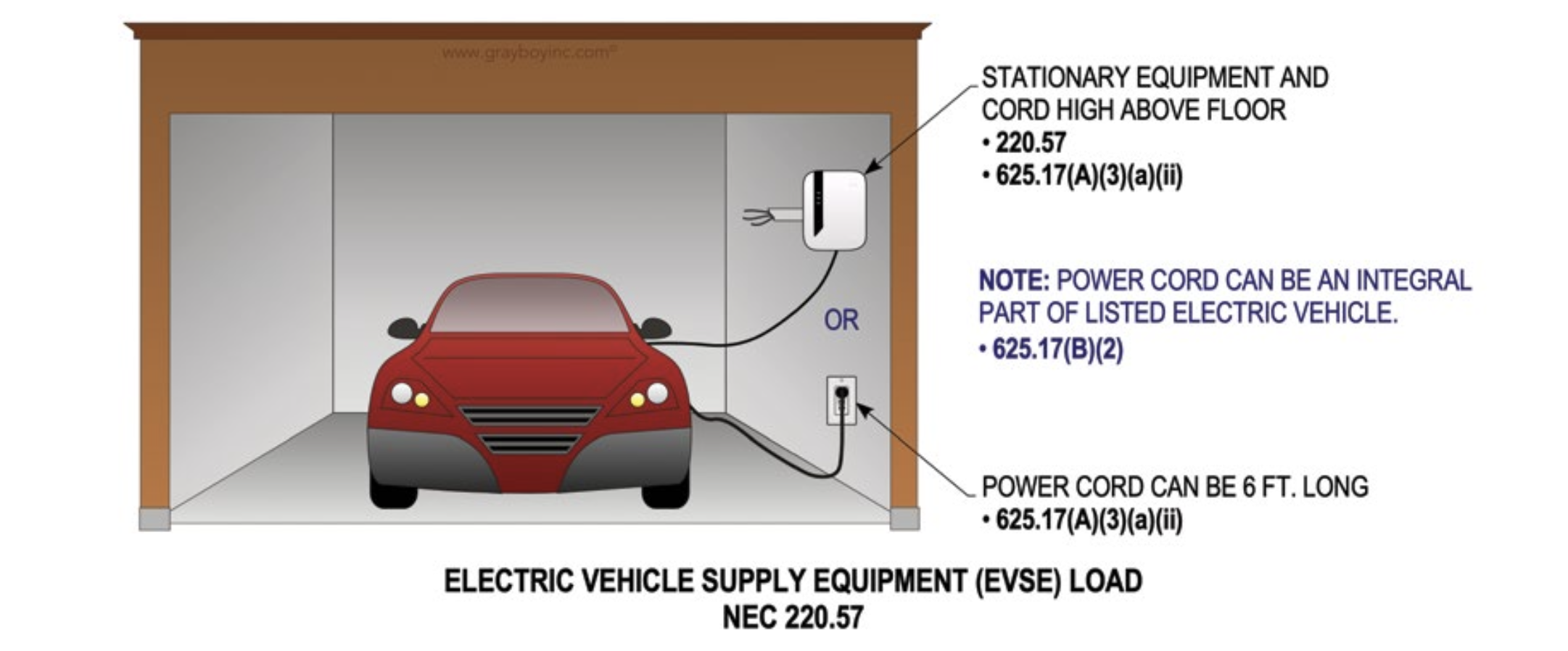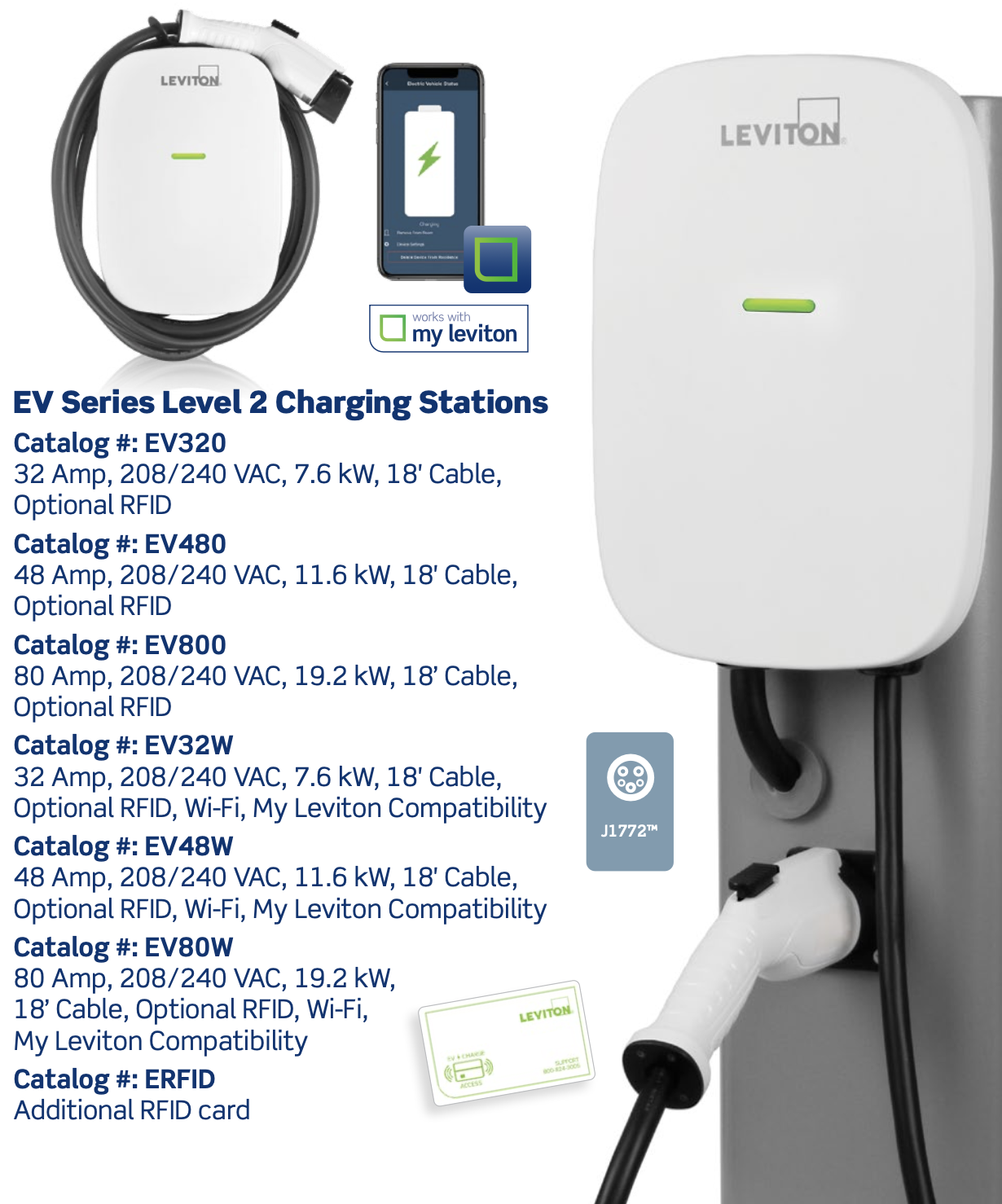220.53, 220.57 EVSE Demand Factor Calculations
Leviton Comment: This guides purpose is to simplify and condense the NEC changes. In that spirit we have merged Articles 220.53 and 220.57. This was done because they both relate to load calculations for EVSE. Placing both articles here in one passage hopefully simplifies understanding to readers.
Change Summary
-
As electric vehicles increase in popularity, guidelines for installing supply equipment is critical. The two articles below address the topic.
| NEC®Text |
|---|
|
220.53 Appliance Load — Dwelling Unit(s). Applying a demand factor of 75 percent to the nameplate rating load of four or more appliances rated 1⁄4 hp or greater, or 500 watts or greater, that are fastened in place, and that are served by the same feeder or service in a one-family, two-family, or multifamily dwelling shall be permitted. This demand factor shall not apply to the following: 220.57 Electric Vehicle Supply Equipment (EVSE) Load. Material taken from the National Electric Code. is reprinted with permission from NFPA 70., 2023 edition. National Electrical Code®, Copyright 2022, National Fire Protection Association, Quincy, MA. All rights reserved. |
Leviton Comment: Since 220.57 above doesn’t designate dwelling or non-dwelling, it would apply to all locations.
Please also reference Articles 625 in this guide for more on EVSE.
Expert Analysis
A revision has been made to clarify that electric vehicle supply equipment (EVSE) shall not be included in the fixed appliance load when performing calculations for the appliance load in a one-family, two-family, or multifamily dwelling.

To do load calculations for EVSE, a new section has been added that dictates that the load shall be calculated at either 7200 watts (volt-amperes) or the nameplate of the equipment, whichever is larger. The 7200 watt (volt-amperes) minimum requirement is based on a 30 ampere, 240 volt, single-phase circuit.
Leviton Solution
Leviton offers EVSE for residential and commercial applications. The unit below incorporates RFID technology that restricts use to only those who have the RFID card. This is great for apartment buildings to control use by authorized tenants.
For residential applications
Compatible with My Leviton App, allowing you to control the whole home, including electric vehicle charging, lighting and load center
For workplace and light commercial applications
All stations can activate optional access control, preventing unauthorized use with RFID cards








